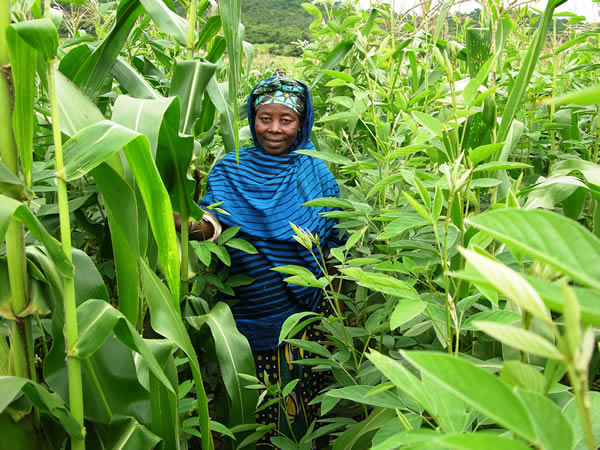Small-holder farmers are the focus of a new and innovative EC-funded €4.7m project entitled: Farm Risk Management for Africa (FaRMAf) that will be testing exciting new financial instruments in order to manage farmer risks. A consortium of AGRINATURA-EEIG institutes, led by NRI, is implementing the project in close collaboration with farmers' organisations, including the Pan Africa Farmers Forum (PAFFO).
 Efforts to increase agricultural productivity in Africa are often hampered by inadequate public investment and restricted access to finance, which make it difficult for farmers to take up available productivity-enhancing technologies. This lack of financial support can be attributed in part to the high risks to which smallholder farmers are exposed, including droughts, floods, pests and volatile markets.
Efforts to increase agricultural productivity in Africa are often hampered by inadequate public investment and restricted access to finance, which make it difficult for farmers to take up available productivity-enhancing technologies. This lack of financial support can be attributed in part to the high risks to which smallholder farmers are exposed, including droughts, floods, pests and volatile markets.
The objective of the FaRMAf project is to make various tools available to smallholder farmers to enable them manage these risks. By doing so, farmers will be able to leverage finance, procure and use productivity-enhancing inputs and adopt marketing strategies which will assure them of better returns. Output and productivity growth will become more sustainable, thereby assuring improved food security and livelihoods of the rural poor in Africa. Special attention will be paid to women farmers, who are responsible for a large proportion of agricultural production in Africa.
The project will be implemented in three countries: Burkina Faso, Tanzania and Zambia. However, in the long-term it is expected that through lesson-sharing, over 285 million smallholder farmers across Africa will benefit.
The FaRMAf project will promote schemes that will enable farmers to manage pre and post-harvest issues, including a weather-indexed insurance which will be linked to input credit, as well as innovative marketing systems such as the warehouse receipt system, which in Tanzania has improved marketing and finance for agricultural commodities such as coffee and cashew.
FaRMAf will also promote collective marketing by smallholder farmers so they can sell into markets that require larger volumes than they are able to produce as individuals. Such groups can even sell through agricultural commodity exchanges, which will be promoted in some of the participating countries.

